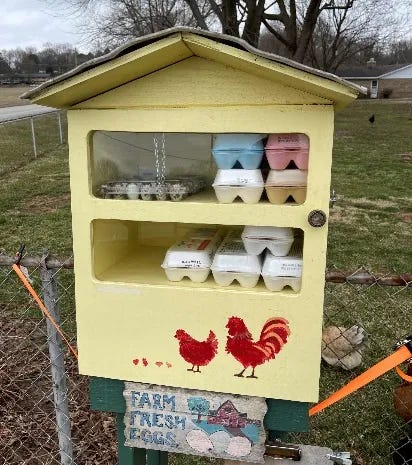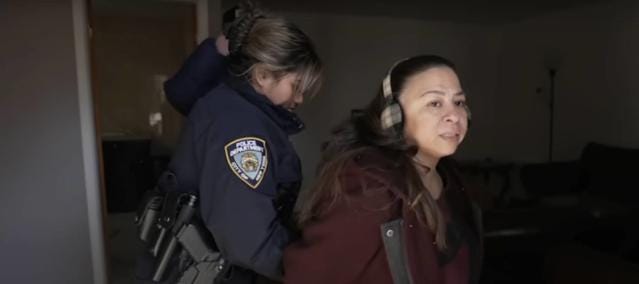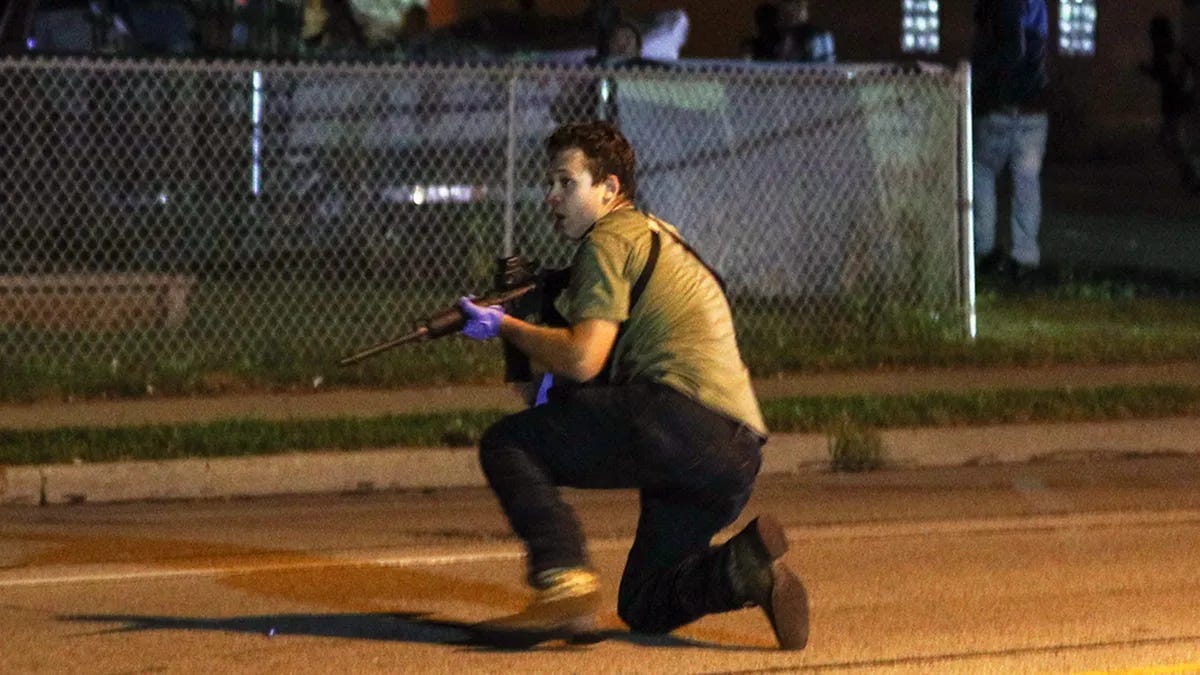In a state of nature, the strong will naturally oppress the weak. Sometimes the weak fight back. The purpose of government is to establish a monopoly on power to maintain social order. Governments gain legitimacy by protecting the weak while also providing benefits to the strong, thus creating a civilized society. Citizens must trust that their government will apply the laws fairly and equally, lest they seek a return to anarchy where they can take the law into their own hands.
Civilization also requires that people trust their fellow citizens. Country folk and small town residents understand this. When you know and trust your neighbors, you don’t need to worry about locking your doors at night. You don’t need excessive laws to govern your interactions when a conversation and handshake do the job. If a young person gets into trouble, the policeman will call his parents rather than putting him in jail, if the police even need to get involved at all.
A high trust society is made up of people with a shared heritage. They speak the same language, celebrate the same holidays, have similar beliefs about the supernatural and how the world should be, and they have a shared history. They naturally stick together through thick and thin.
As much as the globalist project wants to deny it, people have a natural affinity for those who share the same values. It makes it easier to trust your neighbor when you both share values such as honesty, hard work, prudence, etc. Western Civilization was built upon the idea of these shared values, to the point where many of us have forgotten that they are not necessarily universal.
Bad actors can easily take advantage of a high trust society. Imagine a community where a farmer puts stacks of eggs by the road every morning, and his neighbors pick up enough for their own families and leave money in a box. If you introduce someone from a low trust culture into the system, someone who doesn’t share the community’s values of honesty and integrity, you can imagine quickly how that system would fall apart.
Consider laws relating to landlords and tenants. For most of western history, landlords have held the balance of power when it comes to the disposition of their properties. Tenants often had to take what they could get, even if that meant high rents or dilapidated or even unsafe dwellings. The image of the urban slum is embedded in our cultural memory for a reason. Renters often had no recourse if their landlord decided to evict them at a moment’s notice.
Lawmakers saw a problem and attempted to fix it. They passed laws to protect the rights of a tenant to a safe and reliable dwelling place. Landlords were required to maintain livable houses and apartments and couldn’t simply toss renters out without warning. Eviction became a legal process overseen by the justice system.
This system works when all parties trust the government to fairly adjudicate between them. It breaks down when people decide to use law as a weapon. There have been a rash of stories lately about squatters taking advantage of tenant’s rights laws to essentially steal homes from their rightful owners. In New York last week, a woman was arrested for trying to change the locks to keep out vagrants who had taken over her late mother’s home.
A law that was made to protect legitimate tenants was weaponized by people who don’t care about societal norms or the rule of law. Such squatters don’t share the community’s values of honesty, rather they see landlords as chumps who deserve to be taken advantage of.
The recent rise in shoplifting in big cities is another symptom of a decaying society. In some cultures, stealing was punished swiftly and harshly — think of a thief losing his hand in some Arabic nations. Western civilizations implemented protections for those accused of crimes such as shoplifting, including due process and punishment that was considered commensurate to the crime.
Today, shoplifting has become so common in some communities that governments have simply decided to let it go. It’s not worth spending the time and money to prosecute petty thieves so city leaders decide to ignore the problem. Shoplifting has predictably increased as thieves understand there are no repercussions for their crimes against civilization. Today, police are more likely to arrest a store owner who tries to stop a thief than the thief himself.
Store owners, unable to trust that government will protect their property, lock their products away, or in some cases even close their businesses. Both outcomes are blamed on racism and capitalism, as if shoplifting was a natural disaster that simply happens.
What happens when low trust people — criminals, squatters, shoplifters, etc. — take advantage of a high trust society? Their actions act as an acid, eating away at what once was a strong edifice. The high trust society becomes low trust, and people will do what is necessary to protect their own life, liberty, and property.
Even now, social media is highlighting private squads who are taking it upon themselves to evict squatters, since the police won’t do it. Yet like the store owners prosecuted for stopping shoplifters, they will likely face the full wrath of the state for doing what the state refuses to do.
Over the past few years, riding in big city subways has become more dangerous. Unsuspecting travelers find themselves accosted, threatened, and even murdered by random criminals. Last year, Marine veteran Daniel Penny intervened when one of these criminals was threatening people in his subway car. He put the man, Jordan Neely, in a chokehold, which resulted in his death.
Media called him a racist murderer, as Neely was black. New York City took a break from persecuting Donald Trump to file charges against Penny. Gov. Kathy Hochul ordered the National Guard to begin patrolling the subway system — not to protect people from criminals, but to make sure vigilantism doesn’t get out of hand.
Even in a low trust society, laws could be applied equally, but not here. Anarcho-tyranny is the rule, as preferred groups get away with anything, up to and including literal murder, while non-preferred groups are prosecuted for the most minor offenses. Consider how many murderers and rapists have been let free by cities that declared the concept of bail unfair, compared to how many J6 protestors who were sentenced to ten years or more in prison for merely being at the Capitol that day.
This unequal application of the law only further decreases trust in the system. Had Daniel Penny or one of the other passengers been murdered by Jordan Neely, it would barely have made the New York City newspapers. Nobody would know the name of the murderer or the victim. It’s the same as the Kyle Rittenhouse affair. Had Antifa thugs murdered that young man on the streets of Kenosha, few would know his name. News media would have still called the riot “fiery but peaceful”. But because Rittenhouse defended himself, doing what the police refused or were prevented from doing that night, his life was nearly destroyed.
We are watching the deterioration of a high trust society before our very eyes. Americans no longer trust their neighbors, and are increasingly losing trust in their government to maintain social order. The ultimate end of this trend are cities that resembles third world hellholes, not the shining jewels of Western Civilization. The next time you’re traveling on a subway and you see someone being accosted, will you intervene? Or will you think about Daniel Penny or Kyle Rittenhouse and just mind your own business?
To regain the high trust society our grandparents took for granted will require lawmakers, executives, and law enforcement personnel who will not only enforce the law, but keep the peace. They will need to put a stop to bad actors who are undermining our society by using our own laws against us.
More than that, however, we need engaged citizens in our communities. Get to know your neighbors, your city leaders, and police officers. Rebuild the trust that has been eroded over the past few decades. No matter what happens at the national level, we can save our state and our cities, but it will require us to take an active role in shaping our future. The time for sitting on the sidelines has passed; it’s time to get in the game.








Nicely said, especially the closing paragraph. Thank you for reminding everyone how muse have to lose if we don’t take care of whom and what we have.